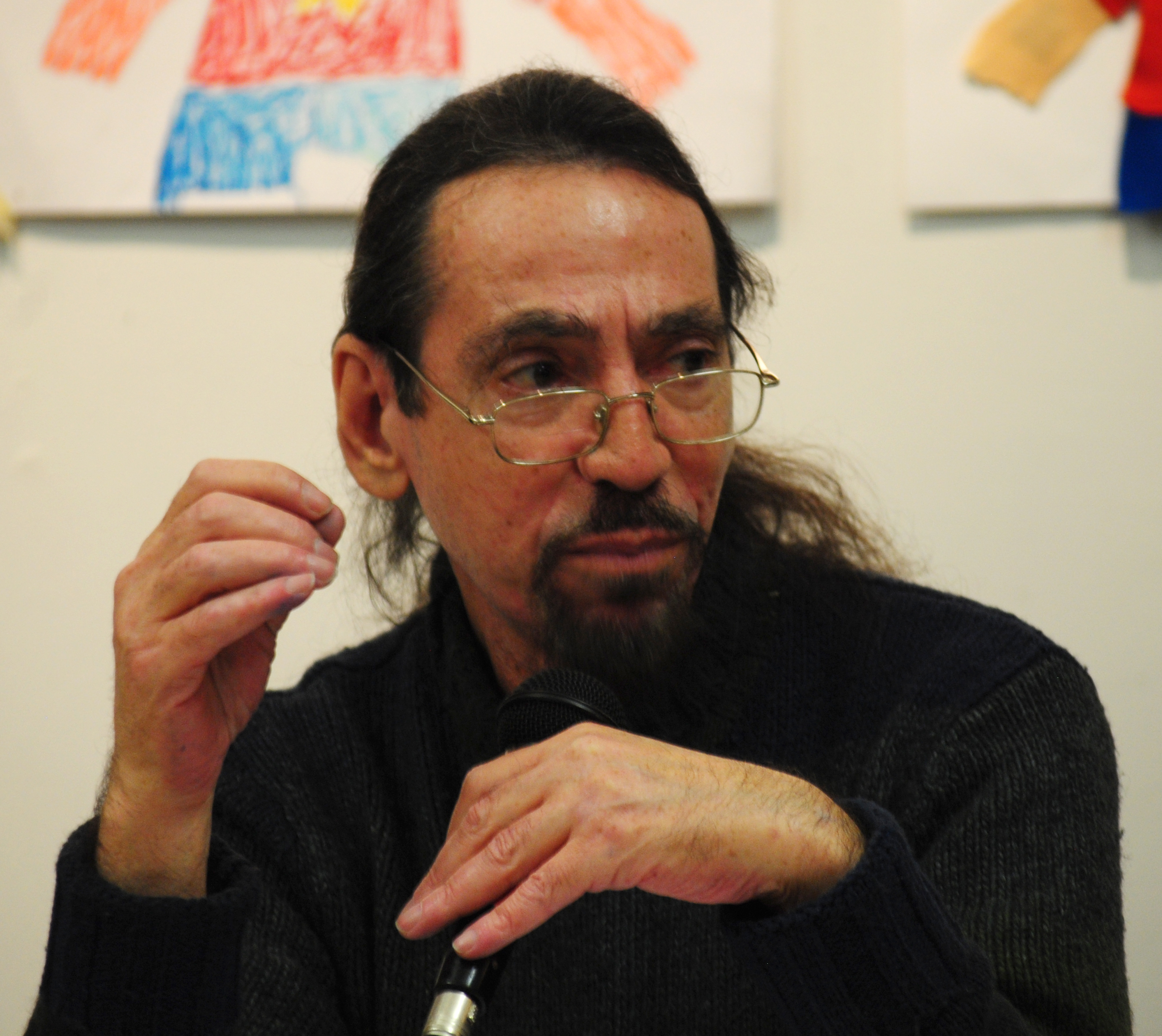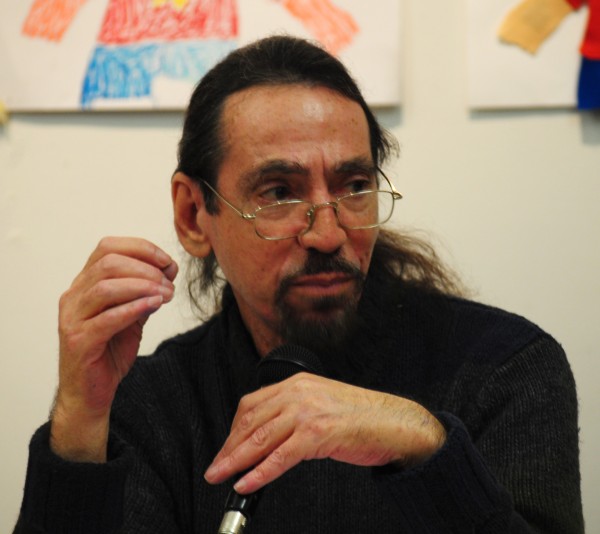
“Any movement that seeks to establish community control of the police must begin by challenging the legitimacy of the police,” said Glen Ford, journalist and executive editor of the Black Agenda Report and former member of the Black Panthers, “With Ferguson we saw a burgeoning movement that challenged the legitimacy of the system itself.”
Ford was speaking at New Urban Arts in Providence as part of a panel sponsored by End Police Brutality PVD entitled The Struggle for Community Control Past and Present: From the Black Panther Party to Providence Today. Also on the panel were Monay McNeil, a student at Rhode Island College, Steve Roberts and Servio G., protesters awaiting trial for allegedly blocking the highway during a Black Lives Matter protest last November, Suzette Cook, whose son was allegedly assaulted by members of the Providence Police Department in 2013, Justice, founder of the “Original Men” and Ashanti Alston, black anarchist and former Black Panther.
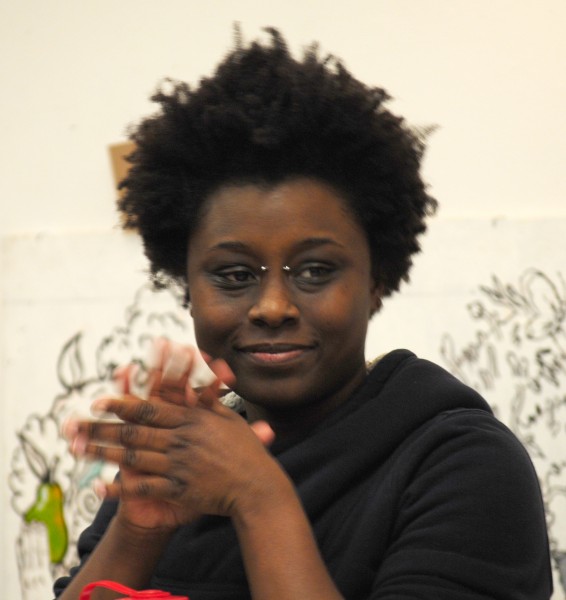
Over 100 community members were in attendance. My only quibble with the excellent discussion was that the number of panelists meant that some speakers were not afforded the time needed to fully expand upon their ideas. Still, this was a fascinating discussion in which the new movement is seeking to learn from civil rights movements of the past.
Moderator Andrea Sterling loosely set the parameters of the discussion as being about “Black Autonomy” and “Community Liberation.” The panel was concerned with the classic problem all nascent social movements must confront: “Where do we go from here?” The description of the event asserts that “activists must choose whether to challenge the foundations of the system that made Black lives immaterial in the first place, or be sucked into the morass of patchwork reforms that enfeeble the movement while failing to alter relationships of power.”
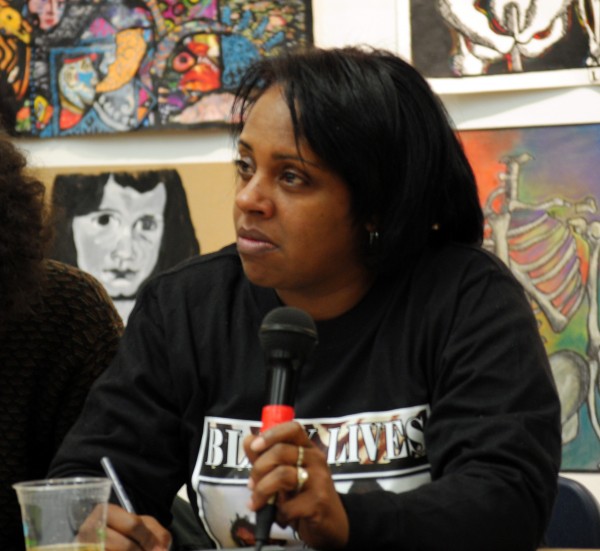
In other words, does the movement seek to reform or overthrow the system? Most of the panelists seemed to think that there was a need for system change, and that such change will not come easily.
“The system is a very racist system,” said Justice, who spent 10 years in prison, “We have to acknowledge that. The relationship between African Americans and establishment power in this country has always been based on violence.”
Suzette Cook, after outlining some of the circumstances in the beating of her son, agreed, “We are literally in a state of war in our own country.”
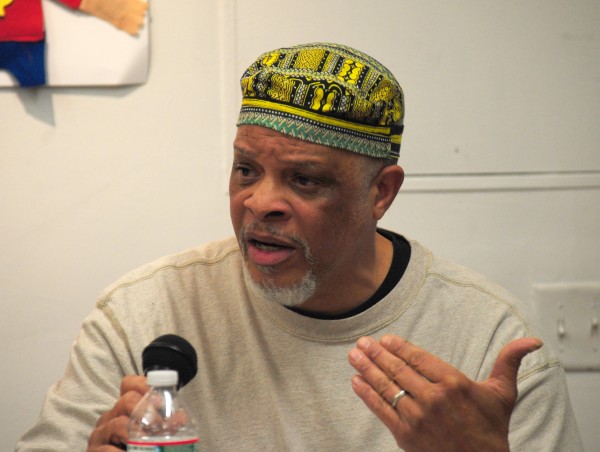
“I was a soldier in the Black Liberation Army,” said former Black Panther Ashanti Alston. Things in America are no different “than in Palestine. We’ve got to fight.” Then Alston grew philosophical, “The acceptance of death allows us to live for our highest ideals.”
Servio has been involved in radical movements for a few years, starting with Occupy, but quickly became disillusioned. “I found out that the Occupy movement didn’t care about anyone who wasn’t white.” Still, he is unwavering in his commitment to system change, observing that, “This is a system of power that uses the police to keep us in our place.”
Minor reforms won’t do, in Servio’s opinion, “The change has to be way more fundamental than that.”

